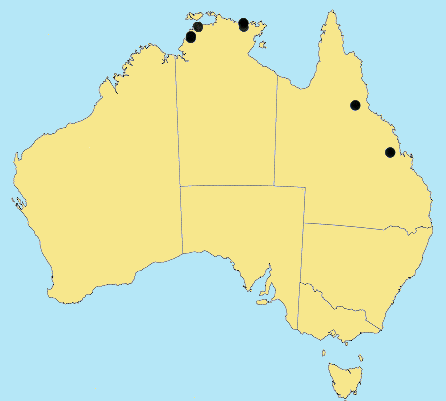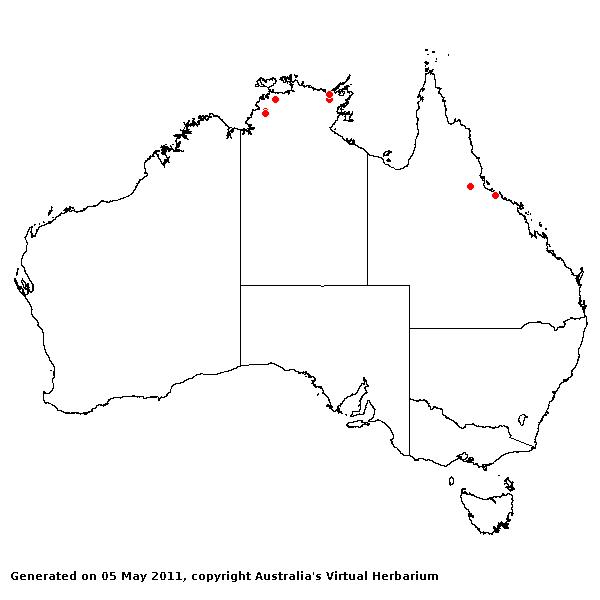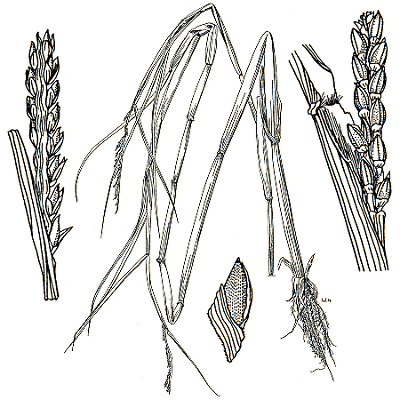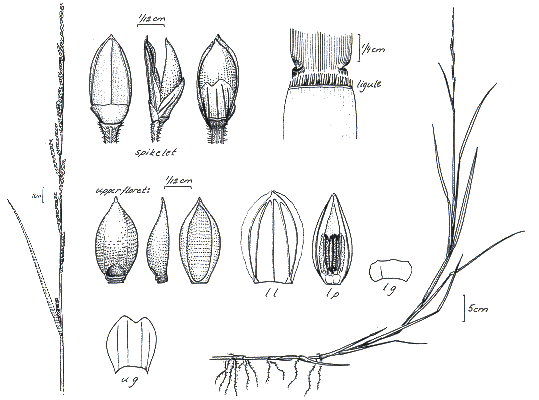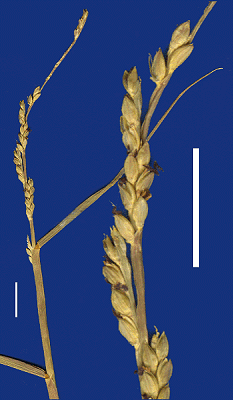Paspalidium udum S. T. Blake. Proc.
Roy. Soc. Queensland 62: 98 (1952).
Classification. (GPWG 2001) : Subfamily
Panicoideae. Paniceae.
Type of Basionym or
Protologue Information: HT: S.T. Blake 16659, 28 Jul 1946, Australia:
Northern Territory (BRI; IT: CANB, L, US-2726310).
Key references
(books and floras): [2002] D.Sharp & B.K.Simon, AusGrass, Grasses of
Australia.
Habit.
Perennial. Rhizomes present, elongated. Culms erect or decumbent, 40–90 cm
tall, spongy, 6–10 -noded. Mid-culm nodes glabrous. Leaf-sheaths glabrous on
surface. Ligule a fringe of hairs, 1–1.3 mm long. Leaf-blades flat or involute,
15–20 cm long, 5–11 mm wide. Leaf-blade surface glabrous.
Inflorescence.
Inflorescence compound, a panicle of racemes. Racemes appressed, 1.5–2 cm long,
bearing 7–13 fertile spikelets on each. Central inflorescence axis 12–19 cm
long.
Spikelets.
Spikelets pedicelled. Fertile spikelets 2-flowered, the lower floret barren
(rarely male), the upper fertile, comprising 1 basal sterile florets,
comprising 1 fertile floret(s), without rachilla extension, elliptic, dorsally
compressed, 2.7–3 mm long.
Glumes. Glumes
thinner than fertile lemma. Lower glume oblong, hyaline or membranous, without
keels, 0–1 -nerved. Upper glume elliptic or obovate, 1.7–2 mm long, hyaline or
membranous, without keels, 3–5 -nerved. Florets. Basal sterile florets
1, barren, without significant palea. Lemma of lower sterile floret 100 % of
length of spikelet, membranous, 5 -nerved.
Fertile lemma 2.5–2.9
mm long, without keel.
Continental
Distribution: Australasia.
Australian
Distribution: Northern Territory, Queensland.
Northern Territory:
Darwin & Gulf. Queensland: North Kennedy, Leichhardt.
